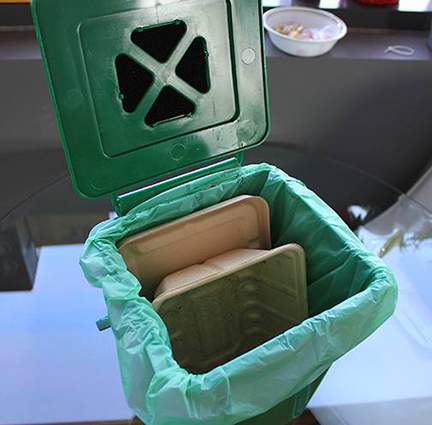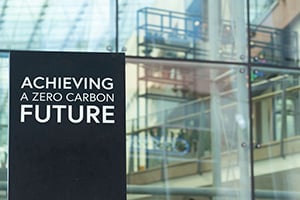
Composting used to be associated with folk referred to derisively as “eco freaks”. However, now that people are more aware of the environmental impact of uncontrolled garbage, turning waste into compost has become common in homes of environmental advocates and people who are into organic gardening. Today, this activity is beginning to gain ground in the business world, and this is good news for urban areas where waste management is a major problem.
The Benefits of Turning Waste into Compost
Diverting biodegradable materials from the waste bin to the compost pile means the volume of trash goes down substantially, and fewer trips (therefore less energy) are needed to pick up garbage. For commercial establishments, this could mean savings in garbage disposal services – savings that can be passed on to consumers or spent on labor benefits. Turning organic waste into compost also means landfills don’t get filled up as quickly. Furthermore, it means less methane is produced, and methane is a greenhouse gas 21 times more harmful than carbon dioxide in global warming. When undertaken by commercial establishments, this is achieved on a much larger scale.
The business world has finally owned up to its crucial role in keeping a sustainable environment. As a result, more and more establishments are participating in efforts to reduce waste and produce useful compost from pre-consumer and post-consumer waste. Cities like Seattle, San Francisco, Portland, Boulder, and Salem have started their green bin programs and San Francisco, for one, reports that it collects 600 tons of organic compostable waste daily.
Buildings and Organic Waste Management
A new and exciting concept has now come of age in architecture. The best modern buildings no longer rely solely on the old chute for garbage disposal; they now accommodate a composting program for all tenants. One example for such a structure is One Market, a green building consisting of two towers with a view of San Francisco Bay and Market Street. With a team from Sustainable Investment Group (SIG) at the helm, this building obtained LEED (Leadership in Energy and Environmental Design) Gold Certification. The building showcases the theory that structures in highly urbanized areas can indeed minimize their carbon footprint. This is the principle that Sustainable Investment Group (SIG) stands by.
Restaurants and Their Food Scraps
Restaurants across the United States have begun to adopt a green bin program where they segregate food scraps that used to join regular trash. The food that used to go into landfills is now collected separately from restaurants so it can be ripened as compost in places provided by the local government. In terms of impact, this can mean a lot. It is estimated that a single restaurant can generate 150,000 pounds of garbage per year, and a lot of that can be turned into productive compost instead of methane producing trash.
Celebrities like Mario Batali have embraced the cause of reducing restaurant food waste. Batali has declared his support for zero food waste in each of the stages of the food chain. Hopefully, this support will encourage other restaurants, fast food chains and hotels to join the effort toward reducing garbage through composting.

Composting at Sustainable Investment Group (SIG)
At SIG, we are always looking for ways to conserve so we take waste management seriously. We found this composting bin at Amazon and it is the perfect size for our compostable waste.
SIG’s biggest challenge was making sure the cleaning crew did not treat it as trash!
© 2014 Sustainable Investment Group (SIG). All Rights Reserved



